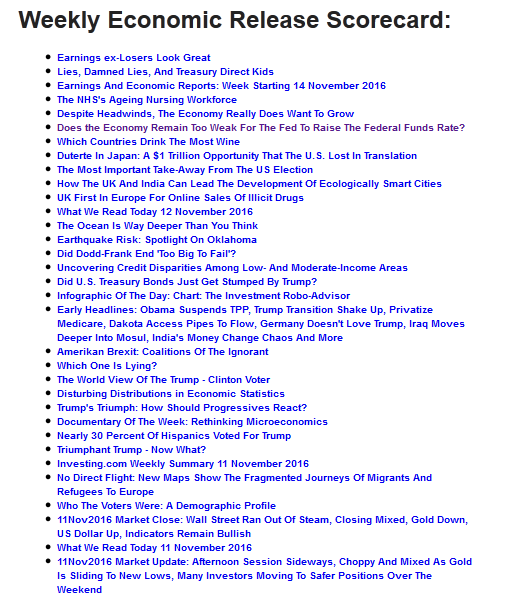I have written before on the raising of the federal funds rate in June. The main thrust of that post:
.... the Fed was negligent in not raising the federal funds rate earlier - when the economy was running on all cylinders in 2014. I have consistently forecast that beginning in 2015, the economy was slowing and that raising the federal funds rate coincident with a slowing economy is not logical on many levels.
Follow up:
Before every FOMC meeting, several misguided souls continue to echo the manure spread by the mass media that the economy continues to improve - and the FOMC is on the cusp of raising the federal funds rate.
The Chicago Fed National Activity Index (as well as other leading indices) say the economy is not running on all cylinders now ....
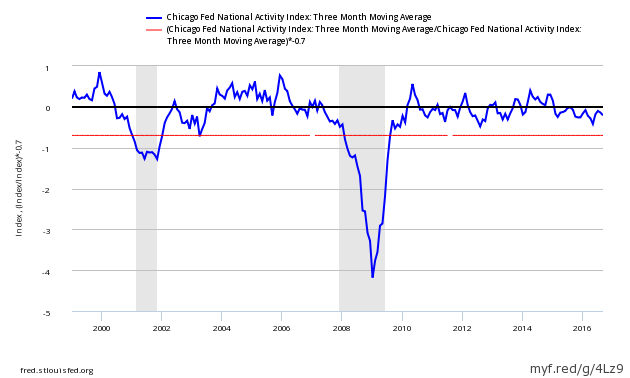
..... and the economy will suck into the foreseeable future [graph below is a projection 6 months into the future]....
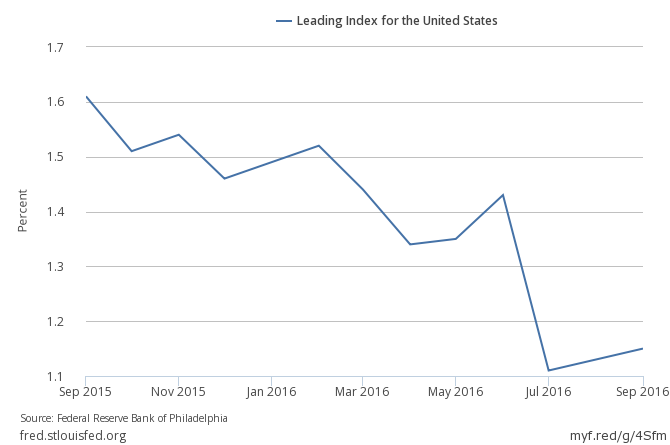
... and the rate of growth of jobs is continuing to slow - and the growth rate is now the worst seen since May 2011.
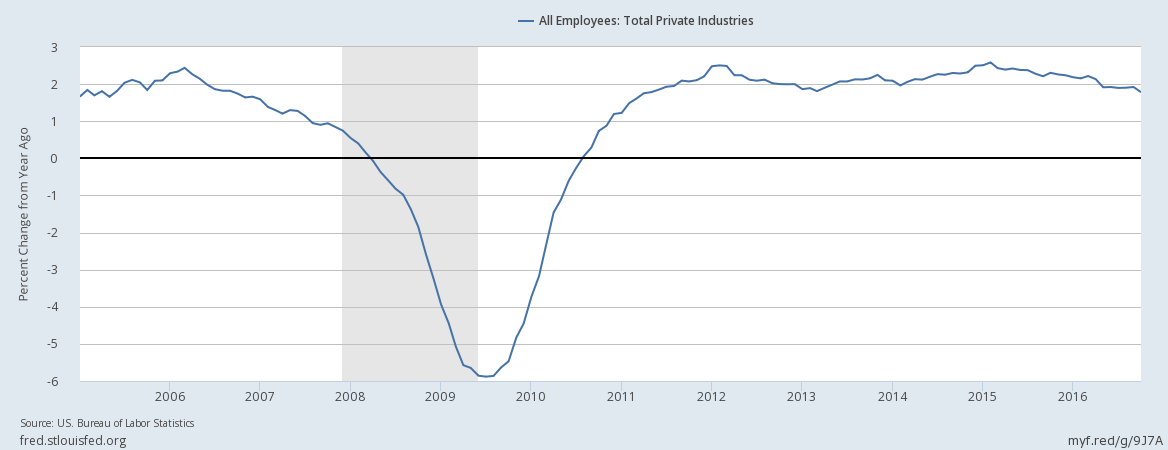
Inflation is understated - and is likely the only reason [based on the FOMC's forward guidance of what would trigger a federal funds rate increase] for raising the federal funds rate.
IMO one of the reasons the economy sucks is because of the artificially low interest rates. There are two sides to interest rates - the benefit to the borrower and the benefit to the lender. In the olden days, as people neared retirement - they converted assets which had high risk or maintenance (like a business) to bonds or other cash instruments. From Bankrate.com:
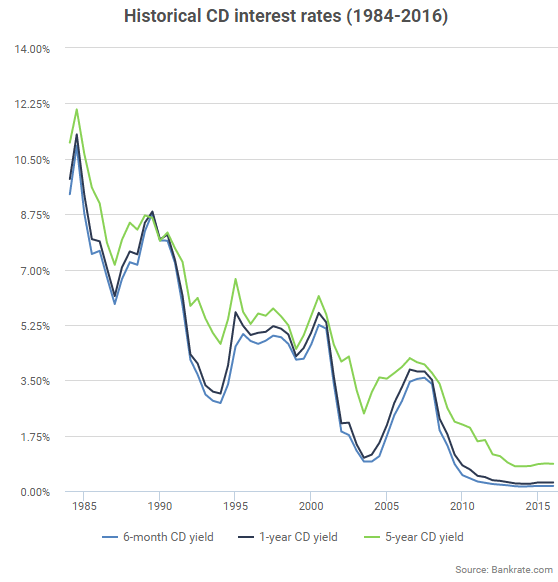
The chart below from Macrotrends shows the 10 year treasury yield back to 1962.
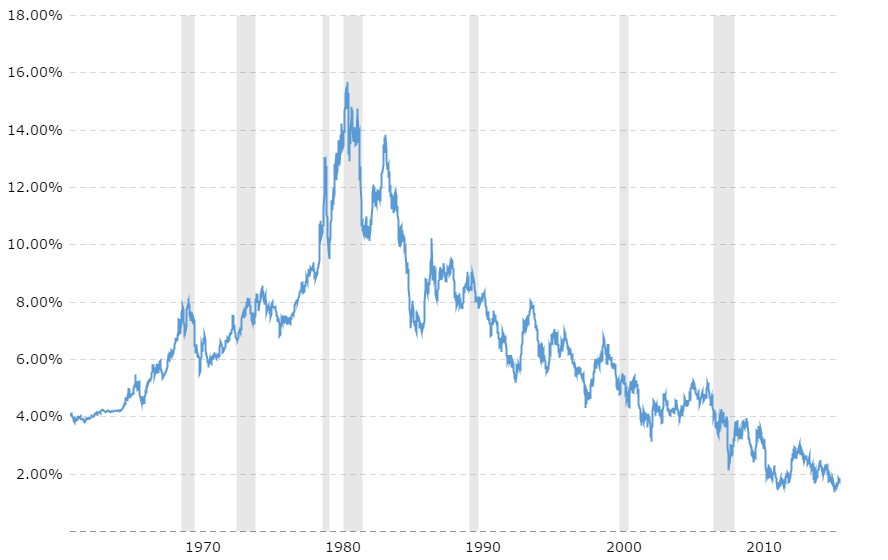
With reduction of interest income - the older demographic has less money to spend. But the younger folks should be enjoying the lower mortgage rates - if they could scrape together the down-payment for real estate that in many markets has recovered from Great Recession peaks.
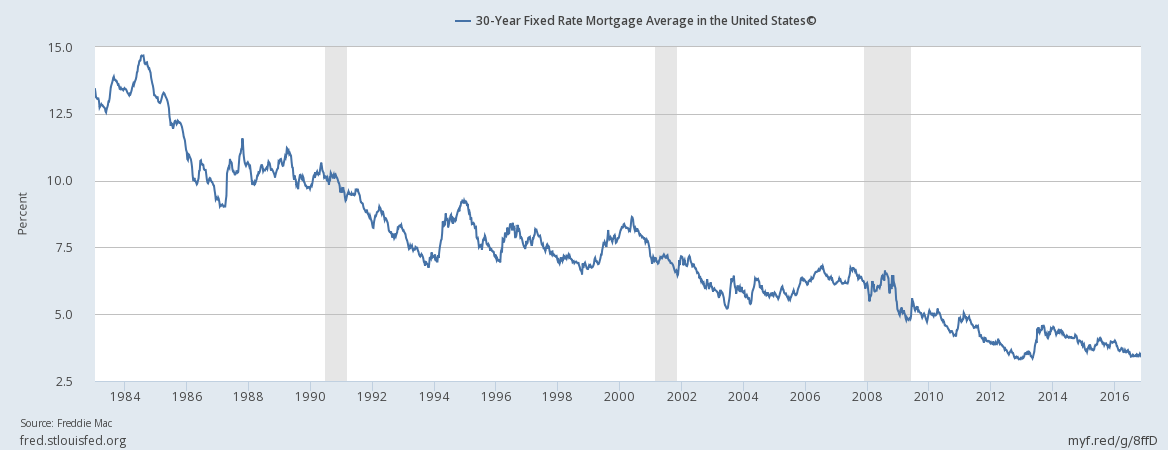
Since 1985, interest rates paid by banks to depositors has fallen from 10% to little more than zero - yet credit card annual interest rates fell less than 5% per annum and still remains in double digits.
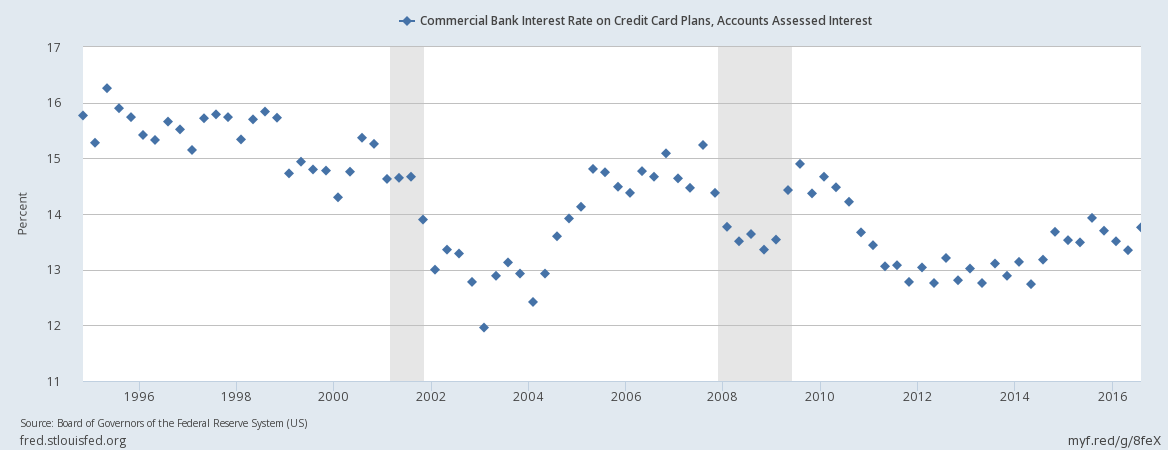
Low interest rates at this point are economically negative
No doubt low interest rates for short periods of time are economically stimulative - note the operative word "short".
The consumer end of the economy is starved for income - and higher interest income to consumers would be positive. The lower end of the consumer economy has little savings and is just treading water, and whatever debt they carry is likely close to usury levels (and would see little impact from higher interest rates as usury is the upper limit).
If the federal funds rate is increased - mortgage rates may rise but consider that 30-year treasury yield currently is well under 30-year mortgages. A small adjustment to the federal funds rate should have minimal impact on mortgages.
It concerns me that the FOMC is baking low-interest rates into the economy. Normalization of interest rates will lower the value of existing bonds - these higher rates will provide principle haircuts to bond holders who don't hold to maturity and loss of income for those who do. It will also affect the federal budget as more money will be spent on debt servicing.
All change is disruptive, but leaving federal funds rate unchanged embeds the low interest rates into the economy where the impact from raising rates grows as more and more of the existing loans are at the historically low rates.
I support, even in this weak economic situation, continued small upward adjustments to the federal funds rate as I believe the disruption caused by increasing the federal funds rate only grows over time.
Other Economic News this Week:
The Econintersection Economic Index for November 2016 declined with the economic outlook remaining weak. The index remains near the lowest value since the end of the Great Recession. Some sectors of the economy continue to give recession warning flags. Six month employment growth forecast indicates minor slowing in the rate of growth.
Weekly Economic Release Scorecard:
